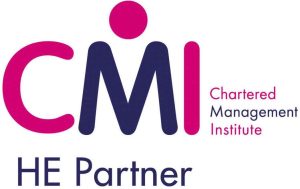Business Management BSc (Hons)
UCAS code: N215
The business world is constantly evolving and full of opportunities. Why do some businesses thrive where others fail? How is an idea turned into a product? How do businesses deliver profit whilst taking care of people? Learn about what it takes to build successful, dynamic and sustainable businesses fit for the modern economy.
Subject to re-validation.
Overview
| Course length: | 3 years full-time 5 years part-time |
|---|---|
| Start dates: | September 2025 |
| Location: | Edge Hill University |
| Example offers: | BCC-BBC (A Level) or DMM (BTEC) View full entry criteria |
| Subject(s): | Business Management |
| Faculty: | Arts and Sciences |
| Department: | Business School |

If applying for for September 2024 entry this course is BSc (Hons) Business & Management.
Learn how to develop and run a successful business. We will equip you with the tools and knowledge you need for your career – whether that is working for a large company or starting your own business.
As you uncover the strategy and structure of organisations on this business management degree, you’ll learn how businesses stay flexible and adapt to changing markets locally and internationally. You’ll learn to think strategically, to manage people and develop entrepreneurial skills. You’ll also be taught to use data and technology to drive businesses forward.
The importance of ethical leadership and how to manage businesses in a sustainable way will be emphasised throughout your course. You’ll be able to engage in live project work at companies across the region, from small towns to large cities – and you’ll be given the chance to help businesses get off the ground in our innovation labs, where business ideas are transformed into reality.
You will also gain eligibility for Affiliate Member status of the Chartered Management Institute.

Course features
-
International students can apply
-
Learn a language option available
-
Professional accreditation
-
Sandwich year option available
-
Studying abroad option available
-
Work placement opportunity
What you'll study
You’ll explore the modern business environment, learning how organisations behave in local and international environments. We’ll introduce you business finance, and look at how to market and operate your business professionally. You’ll also have an introduction to business analysis, finding out how to use data to inform decision-making and organisational strategy.
Compulsory modules:
Business Environment covers the basic principles of micro- and macro-economics. The micro element will provide a theoretical base, and thus allow for the study of organisational behaviour in the marketplace. The macro element will equip you with an understanding of the broader national and international environment in which business operates.
Principles of Marketing introduces you to the central philosophies of marketing thinking and practice. Topics covered include the marketing concept, the marketing mix and the theories of segmentation, targeting and positioning. This is because attracting customers and successfully meeting their needs are at the heart of any successful business organisation. The module will introduce you to a number of the basic building blocks of marketing.
Introduction to Business Finance focuses on the development and interpretation of financial and statistics information to be used in the context of personal skills development and an understanding of business. The module introduces you to basic accounting statements including the statement of financial position, the income statement and cash flow statements and forecasts.
Organisational Behaviour provides a comprehensive foundation to the study of management from both theoretical and practical perspectives. The module seeks to consider the conceptual frameworks relevant to the behaviour of individuals and groups in organisations and examine the issues which are raised in their management. The module focuses on three themes: rational modes of management, people strategies and contemporary issues in the workplace.
Introduction to Business Analytics offers an exploration into the foundational concepts of business analytics, serving as an essential base for further analytical studies. This module immerses students in the diverse world of organisational data, guiding them through the intricacies of extracting, transforming, and structuring raw data for effective analysis. It emphasises the importance of exploratory data analysis, enabling students to visually and statistically reveal patterns and characteristics within datasets. The module is designed to equip students with the skills necessary for succinctly reporting their findings, ensuring a robust understanding of data manipulation and presentation vital for future business analytics projects.
One of:
Professional Business Skills allows you to develop new skills to work in a modern business environment. The module will teach you the ability to understand the business sector of choice through the development of professional commercial acumen, to build bonds with colleagues/team members in traditional and digital environments, and raise your awareness of how to become more ‘visible’ to potential employers through digital networks. The content incorporates essential transferable skills in addition to more technical requirements demanded in specific business functions and roles.
Language 1 is ideal if you want to learn a new language, or further develop your current language skills, as an integrated part of this degree. You can study French, German, Arabic, Italian, Mandarin, Japanese or Spanish (subject to minimum numbers for your preferred language). Delivered at the Edge Hill Language Centre, the module will be taught in an interactive, communicative manner, using authentic materials in the target language. Emphasis will be placed on all four areas of reading, writing, speaking and listening. You will play an active role in the weekly two-hour classes, engaging in role-plays, short conversations, videos, authentic texts and listening materials. You will also be encouraged to reflect on your own learning needs. On enrolment to the module, you will complete a language induction form and be placed into a language level group appropriate for your prior knowledge of your chosen language. Please note, while we will endeavour to accommodate varying language levels per module, this is not always possible. While you can join the module with some prior experience of your target language, you will not be able to study a language you are already fluent or proficient in.
In Year 2 of our BSc (Hons) Business Management degree you’ll continue to explore the modern business, and learn how to plan and operate business projects, both in the UK and abroad. You will be given the opportunity to gain work experience at one of the businesses in our extensive placements network. You will also get the chance to choose optional modules in areas like branding, digital business and performance management.
Compulsory modules:
Strategic Management explores the process of strategy formulation and implementation and considers how the decision-making process influences the choices made by those involved in deciding the strategic direction of organisations. You will gain a critical understanding of how psychological, political, economic, social, cultural and technological factors influence decision-making and the subsequent formulation and implementation of strategy in a range of different types of organisations.
Operations Management gives you the opportunity to learn about relevant concepts and practicalities for application in a working environment. The module will enable you to improve your competitiveness at a global level. Operations management is an area of study that recognises that resources are scarce and that choices must be made between the alternatives available in terms of running and improving operations to a high standard and within budget. Progressing from basic economic concerns, the module considers the practical apportionment of people, time, finances and materials and outlines best practice for how organisations can ensure output is achieved as smoothly and efficiently as possible.
Human Resource Management is concerned with developments in human resource management since the early 1980s and current people management practice. In keeping with the management discipline in general, there have been a number of significant developments in the management of people over the last few decades, not least with the move away from Personnel Management to Human Resource Management. The module will take a practical yet integrated approach, as required by today’s HR professionals.
Work Placement provides you with an opportunity to hone employability skills, relate theory to practice and gain experience in a working environment. The module is designed to enhance your understanding, skill-base, personal development, aptitude for self-promotion and ability to reflect upon your experience in the workplace. It will also help familiarise you with professional business etiquette.
International Business recognises that an understanding of the ways in which business operates internationally is important in the 21st century. The module studies the various factors shaping international business in today’s globalising world economy. You will analyse the different ways and conditions under which firms internationalise their operations and study how different structural changes in the global economy are impacting upon the international business environment.
One of:
Finance and Performance Management will develop your financial knowledge and examine the management of a business with a specific focus on the management of finance within the business context. You will investigate the processes used to develop information to inform managerial decision-making. The module will examine how different business types use financial data in the measurement of their performance. It will also look at real time company information and decision-making and evaluate the significance of the decisions. A key activity will involve investigating the measurement of financial performance of a business through analysing and comparing the models available.
Branding: Integrated Digital Campaigns is designed to link brand strategy and positioning to the creative aspects of branding, thus preparing you for the marketing, marketing communications and branding industry by building a clear bridge between creative solutions and formulating strategy. The module requires you to examine the elements required to build successful brands and specifically the use of traditional and contemporary media.
Business Digital Strategy examines the implications of the internet and the rise of ubiquitous mobile devices that are changing business and society. Specifically, the module will explain how a new economy of creativity, opportunity, connectivity and content has been created. You will consider this ‘digital economy’, the key concepts underpinning commercial activities and investigate how the application of existing theories of competitive advantage and added value can be applied to, or are changed by, digital goods and services that have no physical form.
Business Law explores an understanding of some basic legal principles is important to people working in business, in particular the rules relating to contracts; consumer protection, corporate liability and employment law. Recourse to law is generally to be avoided and so it is important that the subject is seen in a wider context and students exposed to issues relating to risk evaluation. You will learn about the corporate and commercial application of law, and develop management skills in problem analysis and solution. To achieve this you will be immersed in case studies which examine a wide variety of organisational problems.
Language 2 is ideal if you want to learn a new language, or further develop your current language skills, as an integrated part of this degree. You can study French, German, Arabic, Italian, Mandarin, Japanese or Spanish (subject to minimum numbers for your preferred language). Delivered at the Edge Hill Language Centre, the module will be taught in an interactive, communicative manner, using authentic materials in the target language. Emphasis will be placed on all four areas of reading, writing, speaking and listening. You will play an active role in the weekly two-hour classes, engaging in role-plays, short conversations, videos, authentic texts and listening materials. You will also be encouraged to reflect on your own learning needs. On enrolment to the module, you will complete a language induction form and be placed into a language level group appropriate for your prior knowledge of your chosen language. Please note, while we will endeavour to accommodate varying language levels per module, this is not always possible. While you can join the module with some prior experience of your target language, you will not be able to study a language you are already fluent or proficient in.
During your final year, you’ll move on to more specialised and advanced study with us. You’ll work on a live project with a real business, giving you the chance to experience project management in a modern business environment. You’ll be taught about the impact of tech and artificial intelligence on the business world, and discover how business leaders are becoming more sustainable, innovative and ethical in their decision-making. You’ll choose from a number of additional subjects too. These could be topics like business strategy and digital goods, or strategic finance.
Compulsory modules:
The Future of Business: Tech, Data and AI introduces students to the impact that recent technology trends, including data analysis, cloud computing, social media and artificial intelligence have introduced to the modern business. The module will provide insights into businesses, across different industry sectors, that embraced new technologies and thrived, and those whose adoption was more cautious and failed. Students will be given insights into the modern financial environment including new elements such as Open Banking, Block Chain and Crypto Currencies, and what firms require in order to remain compliant with financial regulation. The module will combine both theoretical and practical approaches, with students managing both AI and Data Analytics applications and evaluating business improvements against data protection requirements.
Sustainability and Business recognises that sustainability is increasingly shaping business practice and culture in the 21st century while acknowledging that business has a vitally important role to play in all our sustainable futures. The module will equip you with a comprehensive and holistic understanding of sustainability and the various business and societal contexts in which these can be applied. Exploring the broad and holistic concept of sustainability, as framed by the United Nations’ 17 sustainable development goals (SDGs), you will discover a range of ideas, concepts and theories of sustainability and gain insight how they are shaping the future business agenda. You will examine the inter-connectedness of different sustainability challenges facing humanity, such as climate change, energy and health, and consider the vital role that business has to play in addressing them. You will critically analyse specific approaches to climate action, as well as broader sustainability strategies, that are being devised by companies, business coalitions and partnerships between public and civil sector organisations.
Leadership, Entrepreneurship and Innovation considers how to turn a good idea into a successful market-leading product. Entrepreneurship and innovation go hand in hand and involve the development and release of a new product/service or the repacking of an existing one to provide competitive advantage or even create new markets. This module explores a variety of concepts around strategic entrepreneurship and intrapreneurship. We will examine the difference between an idea, an invention and an innovation and provide you with a case-led understanding of the process in action, from creation to implementation. The module provides you with a number of tools and techniques to critically evaluate success and build on your previous experiences of work-based learning or enterprise education.
One of:
Live Project is based upon an employer/student collaboration, enabling you to take part in a live business project in a real-world setting with a company from our network. You will experience at first hand the issues faced by large and small business owners. You’ll develop skills such as business analysis, negotiation, and strategy, whilst developing networks which will stay with you beyond your studies Where the right opportunity is not available, you will instead study our Graduate Enterprise module.
Graduate Enterprise enables you to experience running your own company with a number of your colleagues. You can create your own product or service, launch it into the marketplace and experience at first hand the issues faced by small business owners. You will be supported by your own business consultant who is on secondment from industry and the full resources of the Graduate Enterprise Company.
One of:
Dissertation enables you to produce a key piece of evidence that shows your development over the degree and how you are now equipped to apply graduate level skills. The module requires the design and implementation of a research project in an area of interest agreed with your supervisor via a research proposal and meeting. Support during the dissertation is given by a specified tutor although you will have overall responsibility for managing the process
Business Strategy and Digital Goods examines the implications of the internet and the rise of ubiquitous mobile devices that are changing business and society. Specifically, the module will explain how a new economy of creativity, opportunity, connectivity and content has been created. You will consider this ‘digital economy’, the key concepts underpinning commercial activities and investigate how the application of existing theories of competitive advantage and added value can be applied to, or are changed by, digital goods and services that have no physical form.
Business Intelligence (Advanced Analytics) bridges the gap between data science and business decision making by introducing you to the fundamentals of data, analytics and data visualisation. The module will take a practical approach that focuses on analytical capabilities being applied to the context of organisations functions and strategies. The digital revolution has resulted in an exponential increase in the amount of data that is generated in society. Whilst business professionals understand that an ability to analyse data will provide them with insights that can inform and guide their decision making processes they still report significant gaps in their ability to derive insights from the data available to them.
Strategic Finance introduces some of the techniques used in financial decision-making. An understanding of the financial implications of decisions is vital for managers. The module provides an insight into the complex issues involved in the financial appraisal of long term projects and allows you to gain a deeper understanding of the theory and practice of strategic financial management.
Language 3 enables you to build on and develop your previous language knowledge in French, German, Arabic, Italian, Mandarin or Spanish. You must have either studied the prior language module in the previous year or be able to demonstrate equivalent knowledge of your target language (though you will not be able to study a language you are already fluent or proficient in). The language levels available will be determined by the continuation of corresponding groups from the previous language module. You will gain the language skills necessary to become a more proficient user of the language. Classes will be taught in an interactive and communicative manner using authentic materials to promote meaningful communication. They will be conducted in the target language as much as possible. Emphasis will be on speaking and listening, with appropriate attention also being paid to other communication skills. Other work will include a variety of tasks which may be completed in the Language Centre.
Where your course includes optional modules, these are to provide an element of choice within the course curriculum. The availability of optional modules may vary from year to year and will be subject to minimum student numbers being achieved. This means that the availability of specific optional modules cannot be guaranteed. Optional module selection may also be affected by timetabling requirements. Some restrictions on optional module choice or combinations of optional modules may apply.
How you'll study
As well as preparing for and attending lectures, seminars, tutorials and workshops, you will spend time reading and completing coursework, including written assignments, presentations, posters and video production.
You will have the opportunity to develop your employability profile through a work placement or participation in a graduate enterprise project. In addition, you will undertake live client projects with organisations or work on agreed projects with real outcomes and impact.
How you'll be assessed
Throughout the programme there is a combination of different forms of assessment to test intellectual development, vocational capability and critical thinking. Portfolios and project work assess your ability to collect material into a coherent submission. Coursework involves individual and group-based activities, case studies and problem-solving exercises. Examinations take a variety of forms, using both seen and unseen questions.
Who will be teaching you
Edge Hill Business School is home to a thriving research community, hosts a growing international partnership portfolio, offering cutting-edge educational experiences to our students.
All of our staff are passionate about student learning and development. This degree is developed by specialists in business management, digital business, sustainability, human resource management, marketing, operations management and small and medium enterprise development. The programme team includes research-active staff, professionally qualified lecturers, and people with extensive industry backgrounds.
Entry criteria
Entry requirements
Typical offer 104-112 UCAS Tariff points. No specific subjects are required.
Example offers
| Qualification | Requirement |
|---|---|
| A Level | BCC-BBC. |
| BTEC Extended Diploma (or combination of BTEC QCF qualifications) | Distinction, Merit, Merit (DMM). |
| T Level | Overall grade of Merit. |
| International Baccalaureate (IB) | We are happy to accept IB qualifications which achieve the required number of UCAS Tariff points. |
| Access to Higher Education Diploma | 45 credits at Level 3, for example 9 credits at Distinction and 36 credits at Merit or 15 credits at Distinction and 30 credits at Merit. The required total can be attained from various credit combinations. |
Please note, the above examples may differ from actual offers made. A combination of A Level and BTEC awards may also be accepted.
If you have a minimum of two A Levels (or equivalent), there is no maximum number of qualifications that we will accept UCAS points from. This includes additional qualifications such as Extended Project Qualification (EPQ), AS Levels that haven't been continued to A Level, and General Studies AS or A Level awards.
English language requirements
International students require IELTS 6.0, with a score no lower than 5.5 in each individual component, or an equivalent English language qualification.
If your current level of English is half a band, one band, or one-and-a-half bands lower, either overall or in one or two elements, you may want to consider our Pre-Sessional English course.
How to apply
Apply full-time
Read our guide to applying through UCAS to find out more about the application process.
International
Please see our international student pages for further information about how to apply as a prospective international student.
Part-time applications require a direct application to Edge Hill. Please select the year of entry that you wish to apply for.
Should you accept an offer of a place to study with us and formally enrol as a student, you will be subject to the provisions of the regulations, rules, codes, conditions and policies which apply to our students. These are available at www.edgehill.ac.uk/studentterms.
If you join a full time undergraduate degree at Edge Hill University, we will guarantee you the offer of a room in our halls of residence for the first year of your course.
Discover our accommodation
Facilities
A stunning £8million building provides impressive teaching and learning facilities for students in Edge Hill Business School. 
The contemporary three-storey building offers a 100-seat lecture theatre and modern seminar and meeting rooms. There are also social learning areas which encourage a more informal and interactive style of learning, in addition to an attractive roof garden and atrium.
Where you'll study
Business School
Finance
Tuition fees
The tuition fees for 2025/26 have not yet been confirmed. This page will be updated with further information when it is available.
EU/EEA and Swiss students who have settled or pre-settled status under the EU Settlement Scheme, as well as Irish nationals, may be eligible for the UK tuition fee rate.
Financial support
Subject to eligibility, UK students joining this course can apply for a Tuition Fee Loan from the Government to cover the full cost of tuition fees. UK students enrolling on the course may also be eligible to apply for additional funding to help with living costs.
Please view the relevant Money Matters guide for comprehensive information about the financial support available to eligible UK students.
EU/EEA and Swiss students who have settled or pre-settled status under the EU Settlement Scheme may be eligible to apply for financial support. Irish nationals can ordinarily apply to Student Universal Support Ireland (SUSI). If you are an EU student who does not have settled or pre-settled status, or are an international student from a non-EU country, please see our international student finance pages.
Your future career
When you finish your business and management degree, you’ll have the skills needed for a successful career in a wide range of industries. You may choose to use your knowledge to start your own business, or find work in areas like human resource management, marketing, banking, and management roles within the public sector.
Graduates of this course have entered careers in a number of different fields, including roles such as:
- operations manager
- project officer
- business and finance manager
- digital account manager
- business development manager
- banking
Recent graduates have gone on to work for organisations like British Aerospace, Airbus, Bentley Motors, and HMRC. Wherever you find work, you’ll have the skills to strategise, manage and lead.
Applying for a graduate role isn’t your only option though. You could stay at Edge Hill to complete postgraduate study. There are a range of options in business and management.
On this course you will gain affiliate membership of the Chartered Management Institute (CMI), a globally recognised professional body, for the duration of your degree and one year after graduation. The CMI is dedicated to promoting the highest standards in management and leadership excellence.
On successful completion of your degree, you will also be awarded a CMI Level 5 Certificate in Management and Leadership. In addition, depending on your selected modules, you may be eligible for exemptions from national professional body qualifications, such as the Chartered Institute of Marketing, the Chartered Institute of Personnel and Development, or the Chartered Institute of Management Accountants.








